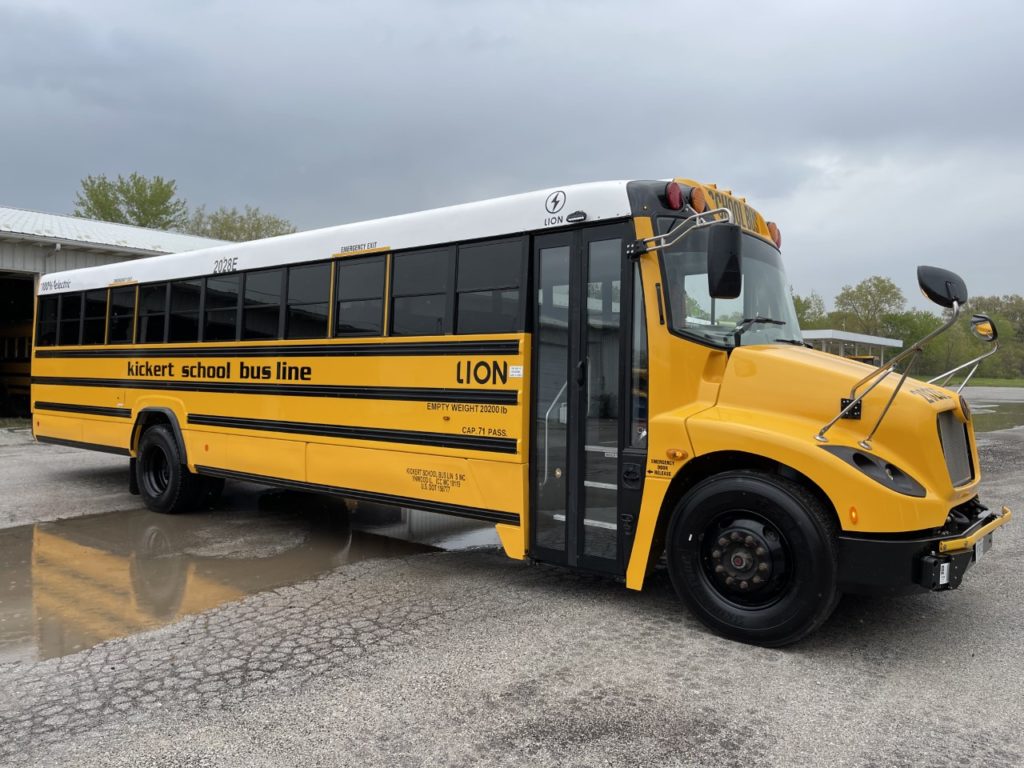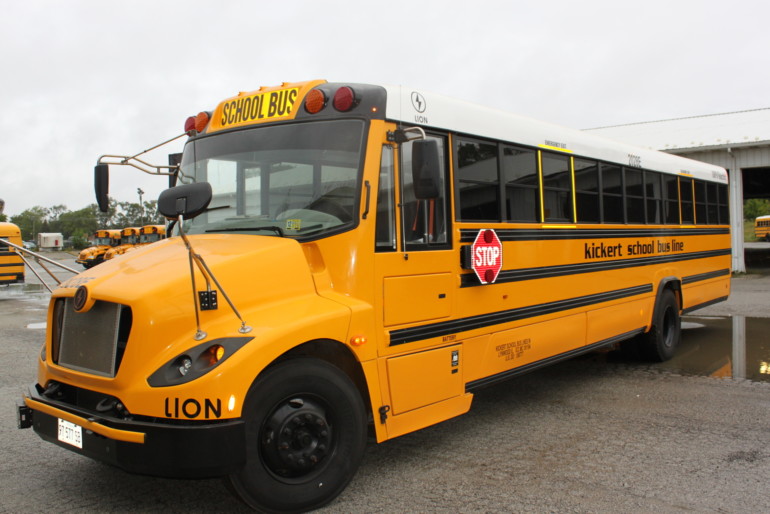Efforts are underway to make those big yellow school buses we’ve known all our lives cleaner, quieter and safer for the kids who ride them.
The Environmental Law and Policy Center (ELPC), a Midwest-based environmental organization, has been working to see electric school buses replace the traditional buses. The goal is to see the nearly 480,000 diesel-powered school buses used across the country eliminated and replaced with safer, cleaner modes of transportation, said Susan Mudd, senior policy advocate for ELPC.
“It is not a healthy thing for kids to be breathing in diesel fumes,” Mudd said. “Breathing in diesel fumes contributes to childhood asthma, the number-one chronic disease for children in the nation. One out of 10 US kids has asthma. In some neighborhoods of Chicago, one in three kids is diagnosed with asthma. Air pollution, specifically diesel buses, are contributing to that problem. A child riding a diesel school bus is exposed to four times the diesel pollution than a child riding in a car in front of a school bus.”
In fact, Mudd said diesel fuel contributes to a child’s lungs not developing as they should. Settlement money received following a lawsuit against Volkswagen in 2016 for emissions violations is being used by states to purchase the $300,000-plus electric school buses. An electric bus costs about three times that of a diesel fuel bus. The funds cover that cost difference. There are 10 allowable uses for the settlement funds including electric school busses, electric transit buses and electrical charging equipment.
ELPC has been working on this effort for the last five years. They hosted a webinar for school and public officials and toured school districts throughout the Midwest touting the positive effects on public health in switching to electric buses and alerting officials that settlement money was available.
Among four Midwest states, including Illinois, there is $20 million from the VW settlement allocated to purchase electric school buses. The electric buses also create a source of revenue for school districts because the system is able to pump electricity back into the grid when buses are not in use, which is about 90 percent of the year.
The push toward the cleaner means of transportation has led to two new bills in Congress that would provide millions of dollars in federal funding to help school districts cover the cost of electric school buses and charging equipment.
With the increasing popularity of electric-powered vehicles in the Midwest comes the Lion Electric Co., a Canadian company, currently building a new manufacturing plant in Joliet where they will build medium and heavy-duty electric vehicles. Lion is the premier manufacturer of electric school buses and is expected to build thousands of electric school buses and create hundreds of new jobs in the Joliet area. The plant is expected to be complete by the end of 2022.

Kickert School Bus Line, established in 1915, is the oldest continuous school bus contract service in the country, and the first to contract electric school buses in Illinois. For the third school year, two of Kickert’s electric school buses are being used in the Matteson and Chicago Heights areas in three different school districts.
With grant money from the VW settlement, Kickert bought each bus for $350,000, a much steeper sticker price than that of the typical diesel fuel-based buses. Those school buses cost about $80,000 and $90,000, said John Benish an owner of the company which operates 19 terminals in Illinois and contracts more than 2,000 school buses. The VW settlement dictates where the buses are to be contracted, Benish said.
Given that only drawback at this point seems to be the expense — which is expected to come down as more electric school buses become available and batteries are designed to last longer — Benish said electric school buses are “definitely going to be the future, there is no doubt about that.”
Make It Better Media Group was a proud sponsor of ELPC’s recent 2021 Gala.
More from Better:
- Give Time, Things, Support: 20 Ways to Make a Difference This Fall Around Chicago
- Greater Chicago Food Depository Partners with Share Our Spare to Deliver 6 Million Free Diapers to Babies in Need
- Nicor Gas Sponsors the 2021 Red Cross Disaster Services Hero Award

Amanda Marrazzo lives in the northwest Chicago suburb of Algonquin. She has been a news reporter for 25 years, including 17 years writing for the Chicago Tribune. She is married with two adult daughters and two dogs.

